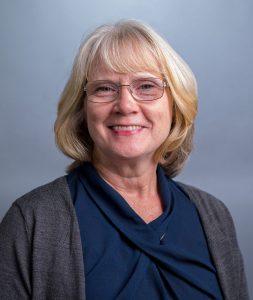 We sat down with Penny Messinger, chair of Daemen University’s History and Political Science Department and director of Women’s Studies, to talk about what graduates can do with a history and political science degree.
We sat down with Penny Messinger, chair of Daemen University’s History and Political Science Department and director of Women’s Studies, to talk about what graduates can do with a history and political science degree.
Can you tell us about the versatility of a degree in History and Political Science?
The degrees of history and political science combine many intellectual skills as well as content knowledge – they are very versatile degrees. We have graduates that have gone on to do amazing things who are working in every sector of the economy – practically any career that you can imagine. For example, some of our graduates have gone into governmental service and many are practicing law or are teaching. Also, some of those who start out in education move into nonprofit positions and then onto business. As faculty, we see ourselves as training people for their future lives, not just a particular career.
What opportunities does the department make available to students?
One of the requirements for our degree programs is completing an internship. This is a great way to try out a career to see if you are interested in a future occupation without the commitment. A number of our students have completed an internship in Washington D.C. with a partnership our program has with the Washington Internship Institute. The internships are competitive and they are a semester long. Through this program, students have interned at the Smithsonian Institution, the United States Department of Education, and many other institutions.
Our programs also include a capstone research requirement. Students choose a question that interests them on an intellectual level and write a 20 to 25-page essay over the course of two semesters. This is valuable for students’ resumes and can help them if they plan on attending graduate school.
Can you tell us about the faculty in your department?
We are Ph.D.-holding professors who are committed to quality teaching and to mentorship of students. We match students with the faculty member who is the expert in the area of the field they want to go into and develop relationships with those students. We are committed to their success, provide guidance, and become someone to bounce ideas off of as they figure out what they want to do in their future.
What is your favorite class to teach?
That’s a hard one! Last semester it was my Global Women’s Issue class. The class I’m most looking forward to teaching next is my class on the U.S. Culture Wars. This class focuses on political and cultural conflict and 21st century history, which is a lively topic right now. I have many favorites.
